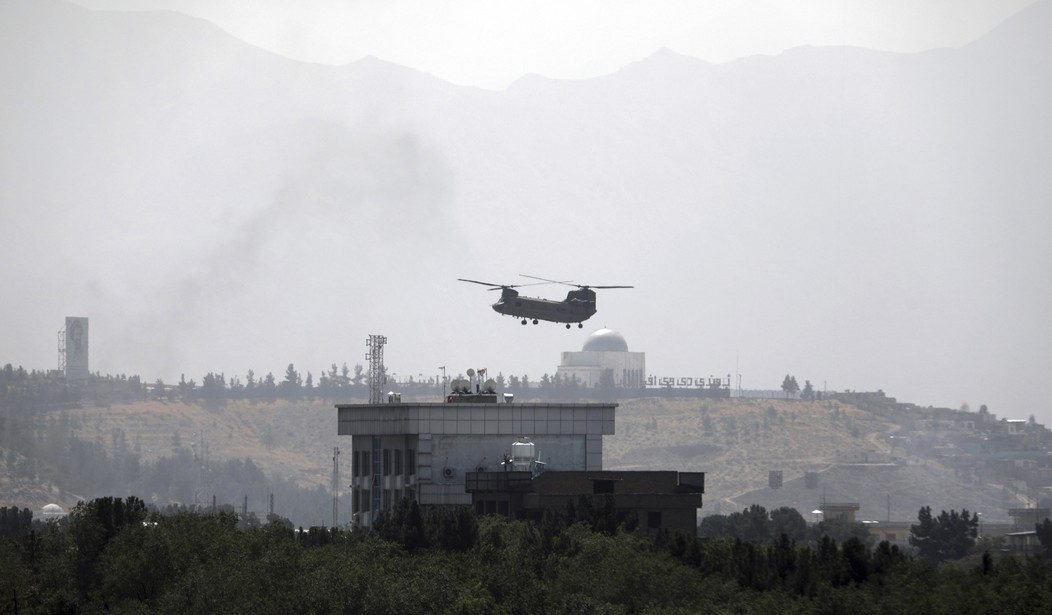It’s been nearly one year since the world witnessed the worst foreign policy disaster to occur in generations. One year since thousands of Afghans rushed a C-17, resulting in bodies falling from the sky. One year since a suicide bomber made his way through a Taliban-controlled checkpoint to the Kabul airport gates, killing 13 U.S. service members who were helping Americans and Afghan nationals trying to flee Afghanistan. One year since 10 Afghan civilians (seven of which were children) were targeted and killed in a U.S. drone strike after the Pentagon tracked and wrongly identified a vehicle they suspected was an ISIS-K threat. One year since hundreds, if not thousands, of Americans were left behind to fall victim to Taliban brutality.
President Biden wants you to forget about what happened in Afghanistan. He wants you to forget about the bureaucratic incompetence and incompetent decision-making by nearly every senior leader. To this day, no one has been held accountable. Accountability, even verbally, would mean admitting failure and taking ownership, something the Biden administration refuses to accept.
The botched withdrawal wasn’t a mistake or a one-time bad call. The catastrophe occurred due to consistent and specific inept leadership failures at the Department of Defense, Department of State, the White House, and the Intelligence Community. Failure to plan. Failure to be realistic about the strength and capabilities of the Taliban. Failure to adequately prepare and vet people to get them out of the country before the U.S. military departed. The Biden administration failed to connect the dots and keep agencies in sync. Pentagon leadership downplayed the truth about the shell the Afghanistan government and military was, as well as the reality that without the U.S. dollar and military propping them up, they would all come crashing down. Washington was hoping for an Afghanistan that they wanted - that should have been after 20 years of war and $2 trillion - but wasn’t. The withdrawal wasn’t a mistake - it was a catastrophic failure of epic proportions.
But aside from the long-term strategic failures, the single operational decision that put the nail in the coffin was the Pentagon’s decision to pull out all remaining troops from Bagram airbase in early July (aside from those 650 service members protecting the embassy). Nearly 3,500 troops left overnight with little notice to their Afghan counterparts. The decision to close Bagram set off a domino effect for the chaotic evacuation. It was a strategic airbase. It was a former Soviet airbase with multiple runways that had 20 years of upgrades since the U.S. military’s arrival in 2001. Tactically, it was much easier to defend than Kabul. Logistics and security were in place. The geographic terrain surrounding the base made for a capable defense. Once Bagram was closed, the U.S. military was left with only one, horrible evacuation option: Kabul.
Recommended
Kabul International Airport was the only airport left to get people out of the country. It is surrounded by the city of Kabul, is plagued with many choke points, and has only one, very vulnerable runway. The State Department’s plan was to keep the U.S. embassy open with 1,400 Americans, secured by 650 Marines, setting the stage for a monumental and deadly hostage situation.
Apparently no one at DoD, State, IC, or the White House considered the possibility that the Taliban might take control of the perimeter of the airport. Nor the fact that if the U.S. no longer controlled access in and out of the airport they’d likely have to send in thousands of troops from the 82nd Airborne. Contingency planning has always been a significant part of mission planning in combat regardless of mission priority, but in this case, it clearly wasn’t given the time or attention it deserved. The U.S. was without a plan with no time to react. Mayhem ensued. People were stranded. People were beaten. People were killed. Scenes were eerily similar to the fall of Saigon as U.S. military helicopters rescued American diplomats off of the roof of the U.S. embassy and left many angry about how history could so perfectly repeat itself.
The failures of the withdrawal of Afghanistan show significant flaws in our national defense decision-making. When the disconnect gets so great between decision-makers in Washington and those commanders on the ground in war zones, it creates impossible situations with impossible expectations. Things that brief well in Washington in SCIFs two stories underground don’t always equate to real-world situations on the battlefield or for those tactical commanders who are left trying to accomplish the impossible.
CENTCOM commander General McKenzie testified in front of Congress that the “Bagram option went away” once President Biden ordered all military troops to depart Afghanistan. Chairman of the Joint Chiefs of Staff, General Milley, contradicted him by stating that using Kabul to evacuate civilians was the plan all along - not Bagram. Political appeasement and bureaucracy killed any chance at winning the 20-year war and in that same vein led to the failed withdrawal that got 13 Americans killed. There has been no responsibility, no accountability.
We will not forget. And the families of the 13 U.S. service members killed during withdrawal operations as well as the thousands of families of those that were killed during Operation Enduring Freedom will not forgive.
Amber Smith is the bestselling author of Danger Close. She is a former Pentagon official and U.S. Army Kiowa Warrior helicopter pilot and combat veteran of Iraq and Afghanistan. Visit OfficialAmberSmith.com for more and follow her on Instagram and Twitter @AmberSmithUSA.
























Join the conversation as a VIP Member